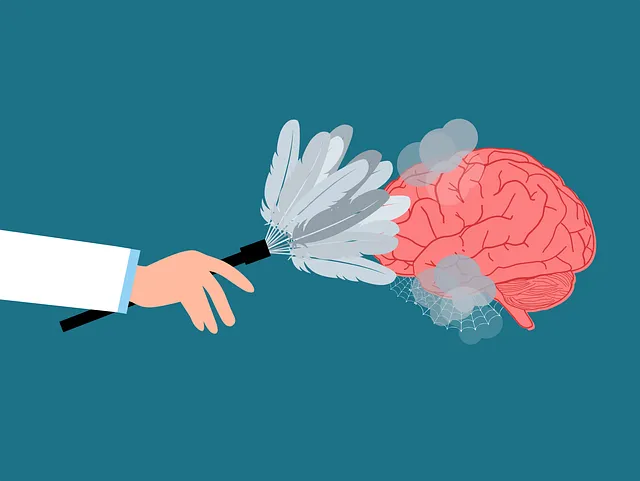Northglenn Kaiser Permanente leverages powerful Northglenn Kaiser Permanente psychiatry reviews and data analysis techniques to navigate complex mental health landscapes. Despite challenges like inconsistent documentation, they employ advanced analytics, qualitative methods, and mindfulness practices to uncover patient needs and trends. This human-centered approach drives personalized care plans, improves outcomes, shapes advocacy strategies, and ultimately fosters a more compassionate healthcare system, revolutionizing mental wellness at Northglenn Kaiser Permanente and beyond.
Mental health data analysis has emerged as a powerful tool, offering insights into complex psychiatric conditions. This article explores the art of understanding mental health data, delving into collection methods and tackling inherent challenges. We uncover advanced analysis techniques that revolutionize psychiatry, from statistical modeling to machine learning. Furthermore, we showcase an application at Northglenn Kaiser Permanente, where data interpretation aids in improving patient care through evidence-based practices, as evidenced by insightful psychiatry reviews.
- Understanding Mental Health Data: Collection and Challenges
- Data Analysis Techniques for Insights in Psychiatry
- Interpreting Results: Applications at Northglenn Kaiser Permanente
Understanding Mental Health Data: Collection and Challenges

Understanding Mental Health Data involves navigating a complex landscape where accurate collection is just the first step. At Northglenn Kaiser Permanente, psychiatry reviews play a pivotal role in this process. These reviews not only assess individual patient needs but also provide insights into broader trends within the mental health care system. However, collecting meaningful data presents significant challenges.
Barriers range from inconsistent documentation practices to privacy concerns, making it difficult to compile comprehensive datasets. Moreover, the subjective nature of mental health assessments requires robust qualitative methods alongside quantitative data for a holistic Mental Health Policy Analysis and Advocacy. Enhancing data collection through Mental Wellness Journaling Exercise Guidance can offer valuable perspectives, enabling healthcare providers to make informed decisions that improve patient outcomes and shape Mental Health Awareness strategies at Northglenn Kaiser Permanente and beyond.
Data Analysis Techniques for Insights in Psychiatry

In the realm of mental health care, data analysis plays a pivotal role in understanding complex psychiatric conditions and improving patient outcomes. Northglenn Kaiser Permanente psychiatry reviews serve as a robust source for insights into effective treatment strategies. Techniques such as statistical modeling and machine learning algorithms enable psychiatrists to analyze vast datasets, identifying patterns and trends that may not be apparent through traditional methods. By applying these advanced analytics, healthcare providers can personalize treatments, enhance diagnostic accuracy, and ultimately, improve mental wellness coaching programs development.
The integration of Mind Over Matter Principles and mindfulness meditation techniques into psychiatric care is a prime example of how data-driven insights can revolutionize therapy. Through the analysis of patient responses to various therapeutic interventions, researchers can pinpoint successful approaches and tailor them to individual needs. This personalized medicine approach not only improves treatment adherence but also fosters more meaningful mental wellness coaching, ultimately contributing to enhanced quality of life for patients at Northglenn Kaiser Permanente and beyond.
Interpreting Results: Applications at Northglenn Kaiser Permanente

At Northglenn Kaiser Permanente, interpreting mental health data goes beyond numbers on a screen; it’s about weaving together insights to create personalized care plans. Through advanced analysis techniques, healthcare professionals delve into trends and patterns within patient records, uncovering valuable information about treatment effectiveness, common challenges, and emerging mental health concerns in the community. This process isn’t just about numbers—it’s human-centered, fueled by a commitment to improving patient outcomes.
For instance, data might highlight the growing need for compassion cultivation practices among young adults or reveal disparities in access to psychiatry services, prompting proactive interventions. By integrating these insights into their Mental Health Education Programs Design, Northglenn Kaiser Permanente can adapt services, advocate for policy changes, and ensure resources are directed where they’re most needed. This data-driven approach aligns with the broader goals of Mental Health Policy Analysis and Advocacy, fostering a more responsive and compassionate mental healthcare system.
Mental health data analysis has emerged as a powerful tool, enabling healthcare professionals like those at Northglenn Kaiser Permanente to gain valuable insights from patient records. By employing advanced techniques, such as statistical modeling and machine learning algorithms, they can identify patterns and trends within psychiatric data. This approach, showcased through successful applications at Northglenn Kaiser Permanente psychiatry reviews, holds immense potential for improving diagnosis, treatment plans, and overall patient care in the field of psychiatry. Through rigorous analysis and interpretation, healthcare providers can make more informed decisions, ultimately enhancing mental health outcomes for patients.






